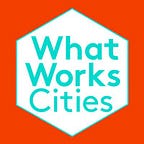Embedding Data in Decision-Making in Henderson
2021 Certification Level: Silver
By Ambreen Ali
“We’re making better decisions because we start with the data,” said Laura Shearin, Manager of Henderson’s Office of Performance and Innovation.
It’s been a decade since Henderson, Nevada, a city of over 330,000 situated southeast of Las Vegas, first launched its Office of Performance and Innovation and began its journey of embedding data-driven decision-making across the City’s work. The pandemic made the need for using data better both immediate and urgent: in March of 2020 the Nevada Governor’s mandate shut down non-essential businesses, resulting in the Las Vegas Valley having the highest unemployment rate in the nation.
One way that Henderson’s data-driven approach helped its residents during that crisis was by modifying payment requirements so that customers could continue to have access to important services. Because every City of Henderson department regularly monitors their data to identify challenges and opportunities, the City’s Department of Utility Services took notice when a statistically high number of residents began to fall behind on payments (12% of water and sewer customers were past due on their bills).
Because of the emergency, and the recognition that people needed water even if they could not afford to pay the bill, Henderson decided to suspend water shutoffs and late fees. The team continued to monitor payments closely during that time and, when residents began to demonstrate an ability to pay their water bills again, they were eased off the program.
“We had to balance the needs of the organization with the needs of the community,” says Priscilla Howell, Director of the Department of Utility Services at the City of Henderson. “We continued to monitor the data to provide insights that helped us decide when it was time to start easing residents off the program.”
The main reason why Henderson can react so quickly in an emergency is the work City officials have done to build a robust system for sharing and acting on data. By implementing software that allows all departments to enter their data into a single platform, the City has created data visibility. Henderson’s focus on data emerged long before the pandemic.
Since she first entered office, Mayor Debra March has set the tone that governing with data and evidence is an organizational expectation, regularly disbursing mini plaques to staff that are engraved with the message “Without facts and data you’re just another person with an opinion.” Each of the City’s 17 departments has a dedicated data analyst, allowing senior leaders to conduct data analysis and report out at the City’s monthly performance and operations review meetings to inform the decision-making process. In addition, the City has developed a tiered method of data collection and reporting that holds every department accountable for performance and data. This ensures that the right information, key data, and valuable insights are made available to the relevant teams at each level of decision-making.
The City’s approach to data is guided by evaluation but also highly entrepreneurial: when the City’s Community Development Department couldn’t get access to county-level data on social services to help inform support for the unhoused during COVID, they worked in concert with local entities to conduct counts and generate their own datasets to determine how to best meet the needs of that community. The City also shifted to a “COVID Dashboard” with specific metrics that would provide the information needed to quickly identify priorities and areas of need.
For residents, Henderson’s data-driven focus produces results through its services. The City uses call volume and population data to determine where to open new fire stations. It also monitors a variety of metrics such as the cardiac survivability rate, and uses benchmarks and “stretch targets” to improve performance. Henderson’s cardiac survivability rate has been outperforming the national American Heart Association (AHA) benchmark — just one example of how data is making a tangible difference in people’s lives.
the national American Heart Association (AHA) benchmark.
Although the City’s most recent biennial survey of its residents and businesses finds that 97% of residents are satisfied with the quality of life (the highest in the nation for mid-to-large sized cities that participated in the survey), city officials are looking for ways to push its services and operations to the next level and reach 98%. “Our vision is ‘To Be America’s Premier Community’,” City Manager and CEO Richard Derrick says. “Being data-driven is tied to one of our core values: High Performing Public Service. We hold ourselves up to national standards like What Works Cities and the Baldrige Criteria, which include best practices for how you manage and use data.”
Despite its sophisticated data-driven operations, Henderson is constantly evaluating its performance and looking for new ways to improve. Applying for What Works Cities Certification helped identify places where the City can improve and achieve even more, Polly Walker, Henderson’s business process consultant, said. “The City of Henderson is very proud and excited to be What Works Cities-Certified, but we’re not stopping there,” she said. “We are looking at the feedback we received from What Works Cities to determine areas where we can get better, because that’s what being Premier is all about: continually improving the services we provide the community.”
Ambreen Ali is a freelance writer and editor based in New Jersey. She writes about technology and immigration, among other topics, and her work has been published in The Washington Post, Bloomberg, AFP, The Wire and Seattle Magazine.
Henderson is one of 55 cities to achieve 2021 What Works Cities Certification, the national standard of excellence for well-managed, data-driven local government. Read stories from other Certified cities here.
